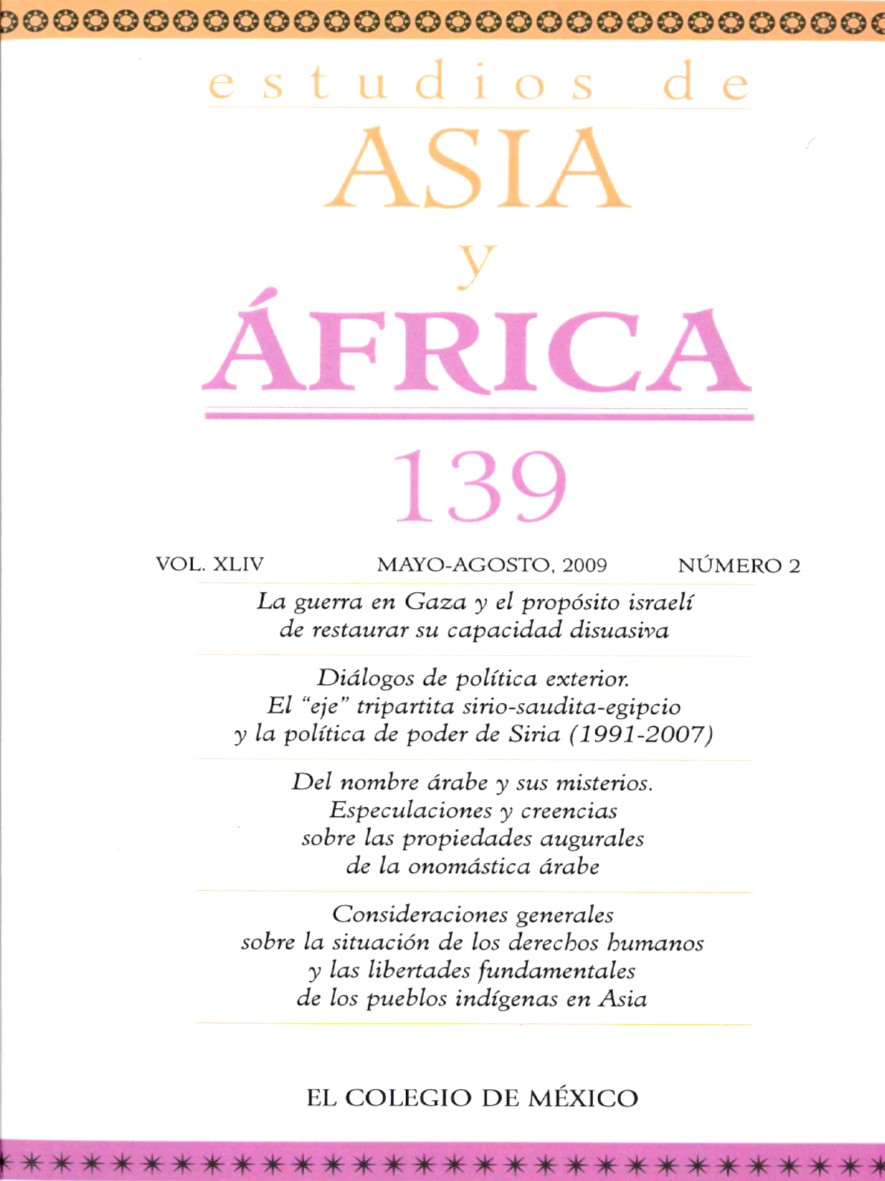Abstract
This article examines the Foreign Policy of Syria in the light of its relations with Egypt and Saudi Arabia since the Gulf War in 1991 until 2007. The limits imposed on the region by the hegemony of the United States are the main cause for the evolution of the tripartite relationship and the coordination of diplomatic efforts by Cairo, Riyadh and Damascus, in a regional security framework characterized by a plurality of spaces, (military, social, ideological and political) actors and conflicts that are superimposed. Based on the concept of power as articulated by international relations theory, this essay emphasizes the specificity of the Foreign Policy of Syria regarding the Saudis and Egyptians, the main factors that contribute to it, its tools and the major changes in the correlation between domestic legitimacy and direction (or general objectives) in its Foreign Policy. The change in US strategy, evident since the late nineties, confirmed after the attacks of September 11th, 2001 and completed in Iraq in the spring of 2003, allows for reflection on the ways in which Arab countries act under a unipolar international system.
This work is licensed under a Creative Commons Attribution-NonCommercial-NoDerivatives 4.0 International License
Copyright 2022 Estudios de Asia y África


